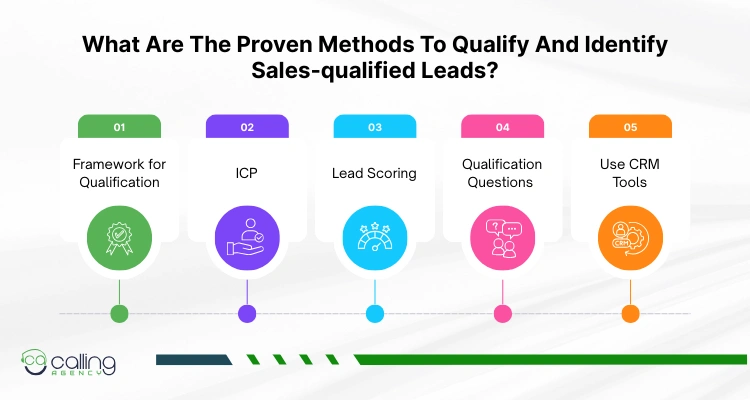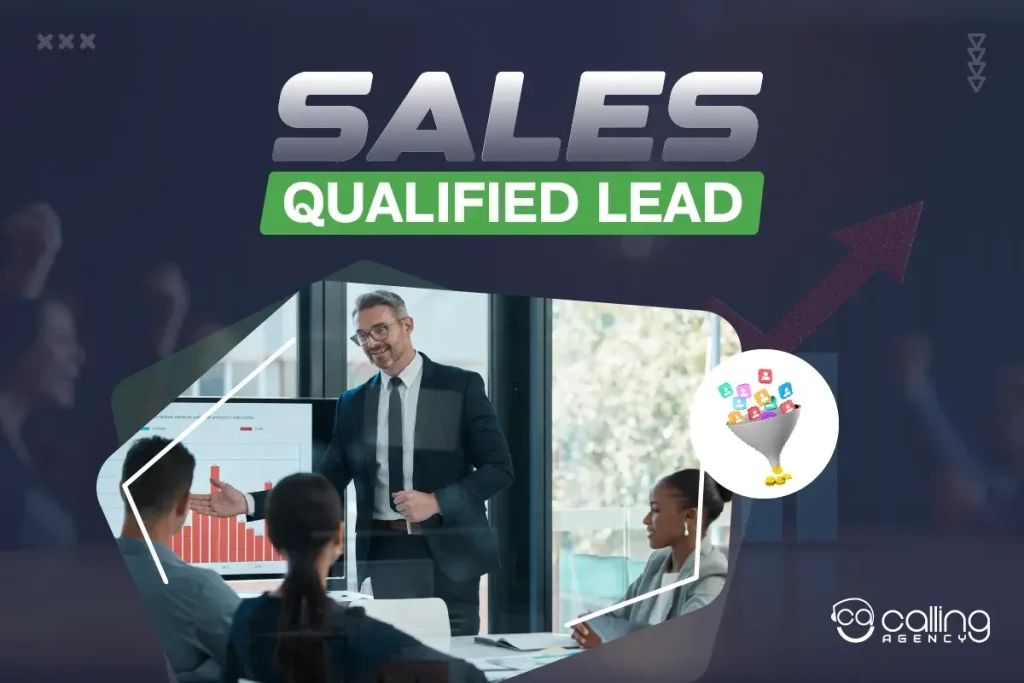No opportunity is wasted when it comes to sales, even if you throw a product to a group of people, someone will buy it, but the matter is that among all of them, 75% people are not your target audience. So if you offer your product to the target audience, then the selling probability will be much higher, and it will reduce your time, effort, and cost. In this article, we will walk you through every detail about Sales Qualified Leads (SQL).
What is a Sales Qualified Lead?
A sales qualified lead (SQL) is thoroughly assessed by marketing and sales, meeting the SQL criteria, and both teams make sure that the lead is ready to make a purchase. Those prospects have shown a high level of interest and are considered likely to convert into paying customers. Sales qualified leads are prospects who have analyzed the market and know about you and are almost ready to buy. These SQLs are high-quality leads, and their conversion rate is almost 20% to 30%.
Why Are Sales-qualified Leads Important?
Sales qualified leads are important because SQLs are most likely to convert into paid customers compared to other leads. Because they have displayed interest in your service or product, and they have mostly visited your company’s website, downloaded a whitepaper, or attended a webinar, etc., let’s see a few key points that make the sales-qualified leads important below. In the context of b2b lead generation, identifying SQLs ensures that your sales team focuses on prospects with genuine buying intent.
- Increased Efficiency and Productivity
- Higher Conversion Rates
- Improved Resource Allocation
- Better Customer Relationships
Sales-qualified leads are to be handed off to the real-time sales team as soon as possible to approach them for a deal-closing discussion because the lead has already decided to buy, so delay may derail them to another brand or diminish their interest.
Marketing-Qualified Leads (MQL) vs Sales-Qualified Leads (SQL)
Let’s take a closer look at the distinction between marketing qualified leads and sales qualified leads in a comparison table to gather concrete knowledge.
| Marketing-Qualified Leads | Sales-Qualified Leads |
| MQL is not ready to make a purchase | SQL is a ready lead to make a purchase |
| Displayed a strong interest in the pricing and details of the product or service. | Reviewed pricing and demonstrated engagement with potential buyers, looking forward to further discussions. |
| May download TOFU content | May download guide, book, or BOFU content |
| Shows interest, but not in the decision-making stage | It’s a decision-making stage |
| Example: Visited the website, downloaded the general guide | Example: visited multiple times, viewed the article, and knew things before making a purchase |
What Are the Proven Methods to Qualify and Identify Sales-qualified Leads?
There are several methods to qualify a sales lead. You can pick one of them that fits your business model the best. Let’s discuss the 5 top used and successful sales lead qualification methods below.

Framework for Qualification
Frameworks are highly effective in qualifying a lead because SQL frameworks are like a road of process. If you take a lead through the roa, you have to follow a few rules and must qualify for them, and finally, those leads that stand out from the process are highly qualified for sales. Let’s take a look at those frameworks in a nutshell.
BANT
BANT is one of the most used frameworks for sales lead qualification, which stands for budget, authority, need, and timeline. Sales teams use this to evaluate lead potential and prioritize the most promising ones. By considering these four criteria, sales reps can judge whether a prospect fits and allocate resources wisely.
MEDDIC/MEDDICC/MEDDPICC
MEDDIC, MEDDICC, and MEDDPICC are sales methodologies designed for complex sales processes. They focus on qualifying leads and advancing deals. MEDDIC is the original framework, while MEDDICC incorporates an additional element: Competition. MEDDPICC further expands on this by adding the Paper Process, which addresses legal and procurement aspects. All three methodologies highlight awareness of customer needs and delivering effective solutions, but MEDDPICC is often regarded as the most comprehensive approach. MEDDIC’s every alphabet stands for
- Metrics
- Economic Buyer
- Decision Criteria
- Decision Process
- Identify Pain
- Champion
- Competition
- Paper Process
SPIN
The SPIN sales qualification framework, created by Neil Rackham, is a methodology aimed at raising awareness of a prospect’s needs through a series of strategically sequenced questions. This approach goes beyond basic fact-finding, allowing for deeper engagement with the prospect and establishing a solid foundation for a successful sale. SPIN is an acronym that stands for Situation, Problem, Implication, and Need-payoff questions.
CHAMP
CHAMP is a sales lead qualification framework for helping the sales team to identify which lead has more potential to be converted into paid customers. CHAMP stands for
- Challenges
- Authority
- Money
- Prioritization
This framework helps sales reps understand a prospect’s needs, decision-making power, budget, and urgency to determine if they are a good fit for the product or service being offered.
ICP
An ideal customer profile (ICP) is a step to take in the initial process of lead generation, which ensures lead qualification, and you segment them according to those that match for outreaching prospects. ICP is an organization or individual who is the best fit for your product or service, with the purchasing ability. Main attributes of an ICP are
- Firmographics
- Technographics
- Psychographics
- Behavioral Traits
If you find a company that matches all those criteria according to your product or service, then you can consider them as an ideal customer profile, and approaching them can be more effective, and it shows better possibilities of being coveted. This is how you can segment your sales-qualified leads, and it has proven records of success.
Lead Scoring
Lead scoring is a guaranteed framework for sales lead qualification because it takes thorough research and a process to maintain. Lead scoring is like ranking a lead based on a prospects quality and eligibility such as if a prospect is looking for the same service or product you sell then you can assign a 5 or 10 points, if the prospects open emails, clicks link, revisit sites, open pricing page according to the importance you can sign them a point.
A lead can be assigned a negative score if they unsubscribe from your email or visit the career page. The point may be according to your own comfortable criteria, whatever it is, now it doesn’t matter, but after a certain score, you can segment them and consider them as if they’re qualified for SQL or not.
Qualification Questions
The right question can make your sales lead qualification process, or a wrong question can break it. So asking a proper question to find a more relevant answer can help you drive the prospect into your sales funnel. Let’s see some questions that can help you qualify a lead, whether it’s sales qualified or not.
Budget and Authority Questions
- What budget have you allocated for this type of solution?
- Who else would be involved in making this purchasing decision?
- What’s your typical approval process for investments of this size?
- Are you the final decision-maker, or would others need to approve this?
Need and Pain Point Questions
- What challenges are you currently facing that brought you to look for a solution like ours?
- How are you handling this problem today?
- What would happen if you don’t address this issue in the next 6-12 months?
- On a scale of 1-10, how urgent is solving this problem?
Timeline and Implementation Questions
- When are you looking to have a solution in place?
- What’s driving this timeline?
- Have you evaluated other solutions? What did you find?
- What would need to happen for you to move forward with a purchase?
The above questions should be asked in conversation, not like an interrogation, to identify whether the prospect has actual interests and needs, or not, and holds the authority to make a purchase.
Use CRM Tools
Customer Relationship Management (CRM) tools are crucial for effective sales lead qualification. Modern CRM systems provide the infrastructure needed to track, score, and nurture leads throughout the sales funnel of your business. Let’s see some popular CRM tools for SQL management:
- HubSpot
- Salesforce
- Pipedrive
- com
- Zoho CRM
The key is choosing a CRM that integrates well with your marketing automation platform and provides the reporting capabilities your team needs to optimize the lead qualification process.
Why Sales-Qualified Leads Are Critical to Sales Efficiency and Revenue Growth
Sales-qualified leads represent the junction of marketing effectiveness and sales productivity. Understanding their critical role helps organizations optimize their entire revenue generation process.
Enhanced Sales Team Performance
When sales teams receive properly qualified leads, they can focus their time and energy on prospects most likely to convert. This focused approach leads to:
- SQLs already understand your proposal and have shown purchase intent
- Quality leads convert at 3-5x the rate of unqualified prospects
- Reps experience more success and less frustration when working with qualified leads
- Qualified pipelines provide more predictable revenue projections
Revenue Impact and ROI
Organizations with mature lead qualification processes see significant financial benefits if implemented properly. Let’s see how they impact revenue:
- Studies show companies with strong SQL processes generate 18% more revenue per salesperson
- Focusing on qualified leads reduces wasted marketing and sales spend
- Companies with aligned sales and marketing teams grow revenue 19% faster annually
- Better lead quality means marketing investments generate more qualified opportunities
Competitive Advantage
In today’s competitive marketplace, the speed and accuracy of lead qualification can determine market success:
- SQLs allow teams to respond to hot prospects immediately
- Qualified leads receive more personalized, relevant interactions
- Teams can allocate their best resources to the most promising opportunities
- The qualification process provides valuable insights about customer needs and market trends
Organizations that invest in robust SQL processes position themselves for sustainable, scalable growth while building stronger customer relationships from the first interaction.
Conclusion
Sales Qualified Leads represent a critical bridge between marketing efforts and sales success. By executing structured qualification frameworks, asking the right questions, and utilizing CRM technology, organizations can dramatically improve their conversion rates and revenue growth. Regular review of your SQL definitions, scoring models, and handoff processes ensures your lead qualification remains effective and drives sustainable revenue growth.
The investment in proper SQL processes pays dividends through higher conversion rates, shorter sales cycles, and more predictable revenue. In today’s competitive landscape, organizations that master lead qualification gain a significant advantage in acquiring and retaining customers while maximizing the efficiency of their sales and marketing investments.
FAQs
How is an SQL Different From an MQL?
An MQL (Marketing Qualified Lead) shows interest and fits your target profile but isn’t ready to buy, while an SQL (Sales Qualified Lead) is reviewed as ready for sales engagement with clear intent, need, and buying potential.
Which Criteria Define an SQL?
A Sales Qualified Lead (SQL) is defined by these criteria:
- Fit: Matches the ideal customer profile (industry, company size, role).
- Interest: Shows clear engagement or intent to buy.
- Budget: Has the financial ability to make a purchase.
- Authority: Can make or influence buying decisions.
- Timing: Ready to take action in the near term.
How Do You Score and Threshold SQLs?
SQLs are scored based on fit (company size, industry, role) and intent (website visits, demo requests, content engagement). A lead reaches SQL status once it meets a predefined threshold that indicates readiness for sales, often a combined numeric score from fit and behavior.
When Should Marketing Hand Off a Lead to Sales?
Marketing should pass a lead when it meets both fit and intent criteria, showing sustained engagement and clear buying signals. A formal SLA ensures timely handoff, usually within 24-48 hours, so sales can follow up while the lead is still engaged.
Which Qualification Frameworks Help Validate SQLs (BANT, MEDDIC, SPICED)?
Frameworks like BANT (Budget, Authority, Need, Timeline), MEDDIC (Methods, Economic Buyer, Decision Criteria, Decision Process, Identify Pain, Champion), and SPICED (Situation, Pain, Impact, Critical Event, Decision) help structure questions to consistently validate whether a lead is ready for sales.
How Should SDRs Operationalize SQL Qualification?
SDRs validate SQLs by reviewing lead scores, engaging leads via calls or emails, asking framework-based questions, updating scores, and handing qualified leads to account executives. They also provide feedback to marketing to improve scoring and nurture processes.





